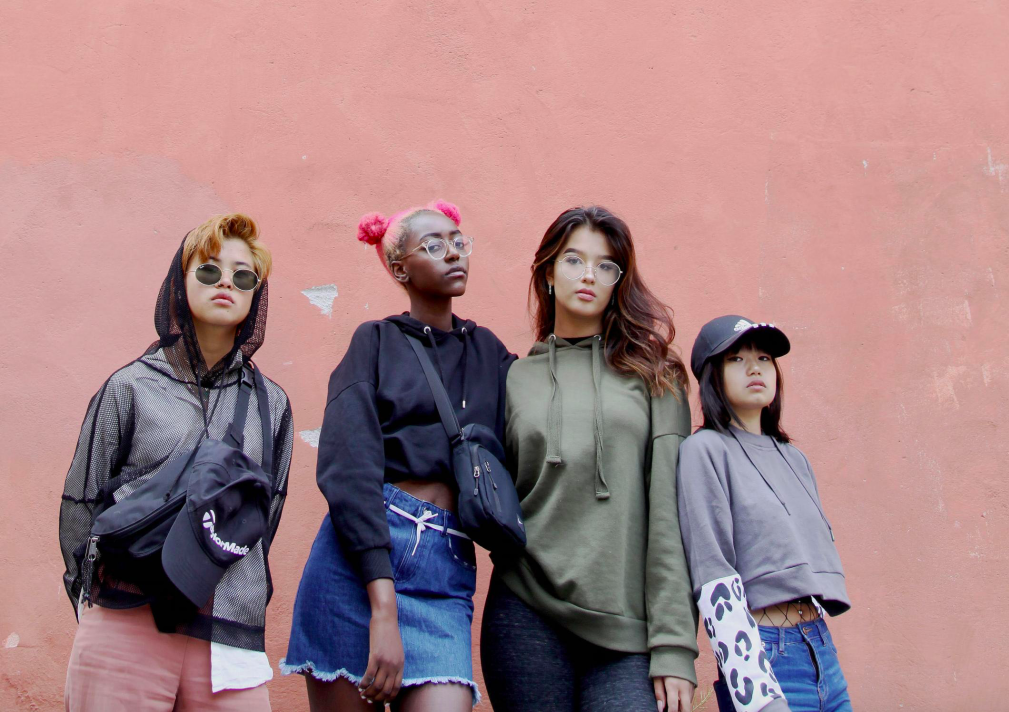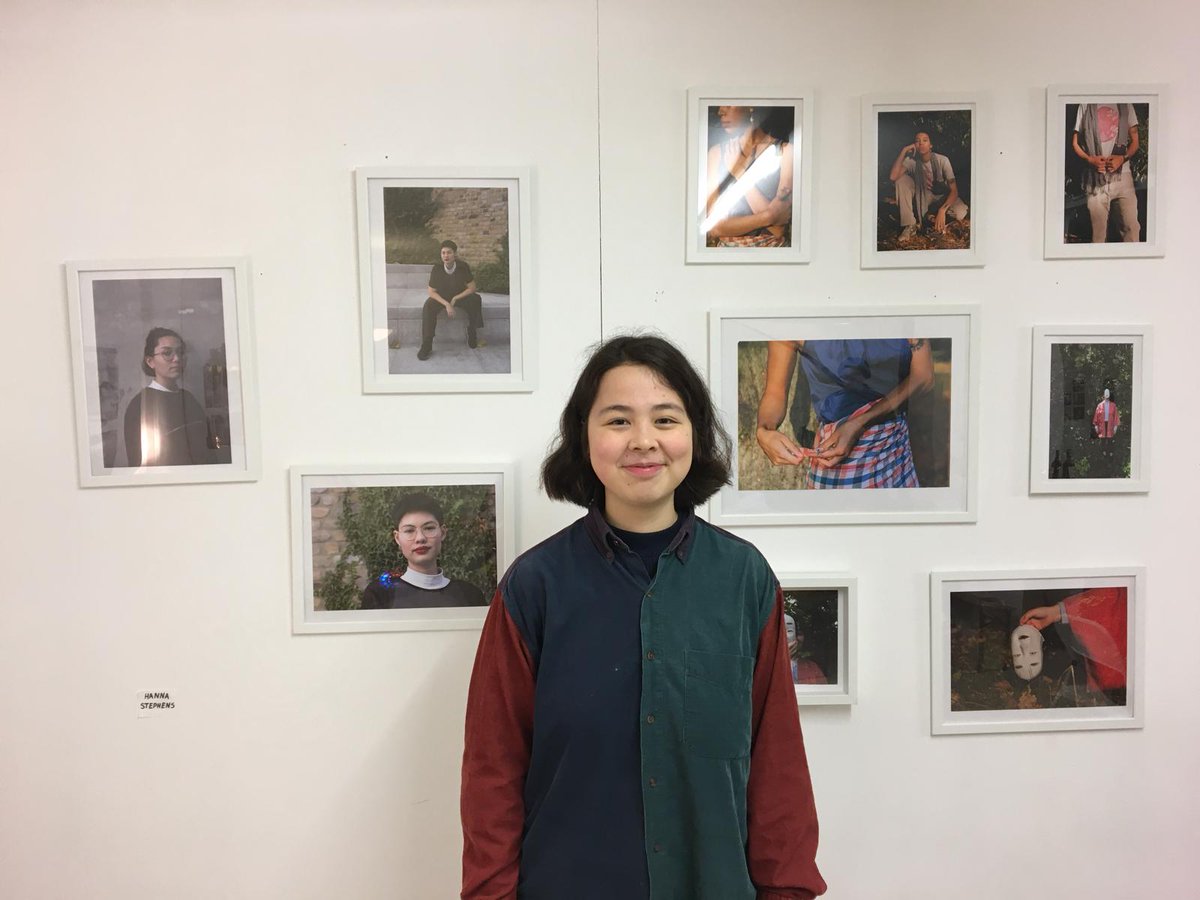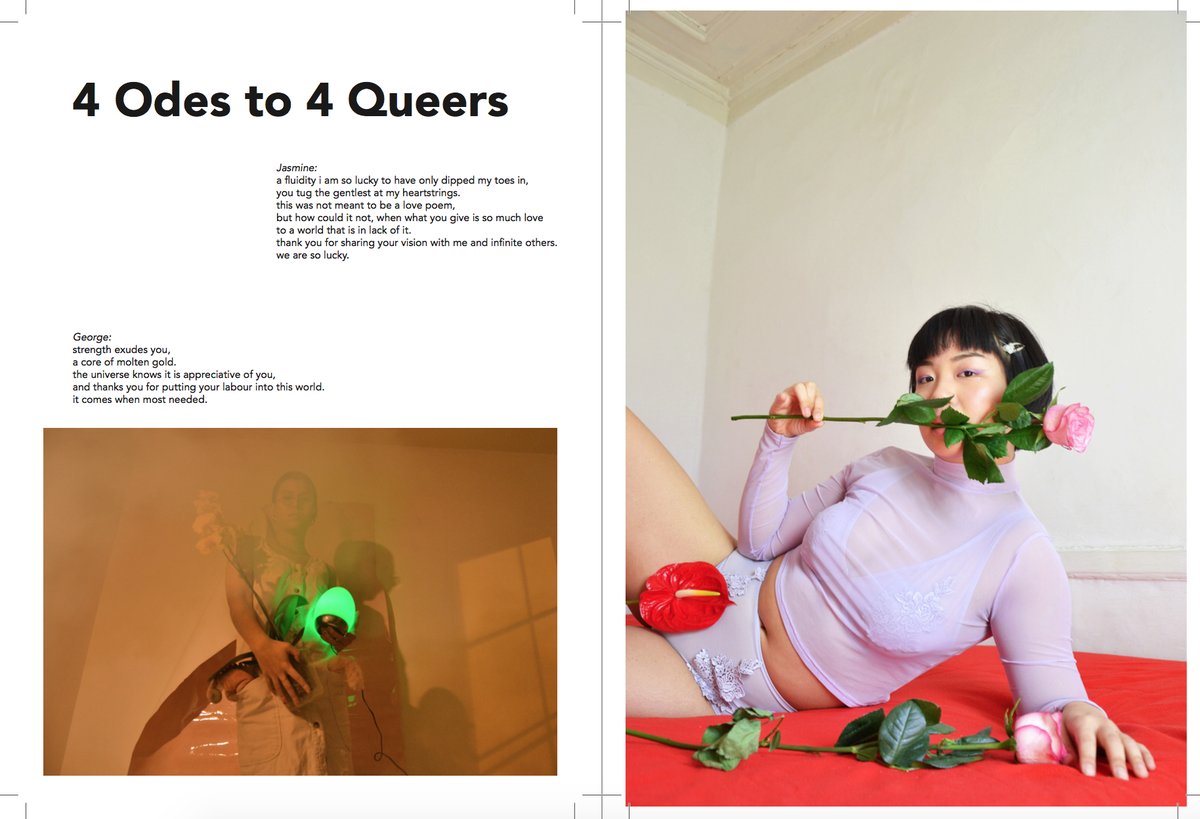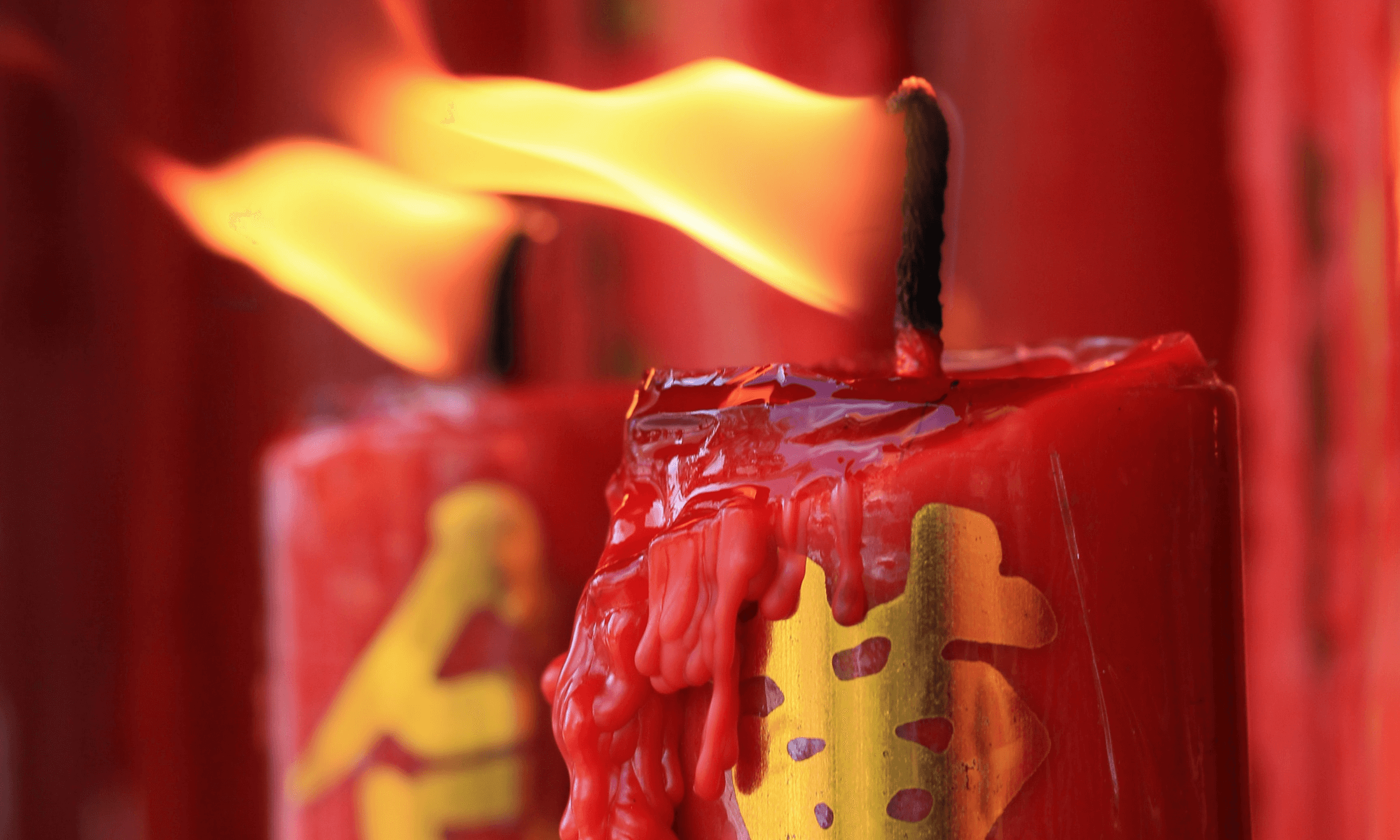
This zine is all about East and Southeast Asian identity
Joanna Sing and Aditi Shivaramakrishnan
29 Jan 2018
Mainstream explorations of East and Southeast Asian diaspora experiences are few and far between; perhaps the most prominent portrayal is Nahnatchka Khan’s Fresh Off the Boat, the first American sitcom to star an Asian family. Meanwhile, in the UK, we haven’t even seen an East/Southeast Asian family on Eastenders…despite being set in London, a multicultural metropolis.
I have now craved representation of people who look like me as well as discussions of our experiences for a long time. Thankfully, seven London-based East and Southeast Asian womxn and non-binary people created Daikon*, a zine illuminating these underrepresented voices. gal-dem caught up with them ahead of the release of their fourth issue.
gal-dem: what inspired you to start Daikon*?
The collective feeling behind creating Daikon* was that we weren’t seeing Southeast and East Asian women and non-binary people represented in conversations about race and feminism. We wanted to be a part of these conversations but didn’t know where we could place ourselves within them. In spaces created for people of colour we don’t want to take up space, yet we still feel the effects of living in white-dominated societies and the effects of sexism that are different to white feminist perspectives. So really, we just wanted to create a platform and community for ourselves and others who might have similar feelings to take up space but do so whilst critically interrogating our positions and privileges.
Can you explain the name?
Initially it came from thinking about what could unify us and the range of countries that are a part of our heritage (Thailand, Malaysia, South Korea, Hong Kong, China, Japan). Daikon is the Japanese name for a radish that is used in cooking across a number of Asian countries, and a few of us grew up (in London) using this term for it. It means “big root” in Japanese, which we thought was a good metaphor for our desires for deep-rooted and structural changes. It also sounds like “dyke” which reflects the queerness of the majority of the team.
“In spaces created for people of colour we don’t want to take up space, yet we still feel the effects of living in white-dominated societies”
One of our contributors pointed out that having the Japanese name for this vegetable centres Japan which draws parallels with how Japan is often centred and culturally revered in Southeast and East Asia but also in the West. This has its issues because historically Japan has, through imperial violence, attempted to gain control over many Southeast and East Asian countries and erase differences. To try to acknowledge this sense of difference, we later added an asterisk to our name which connects to a long list of other terms for daikon in other languages spoken across Asia.
Can you talk us through some of your inspirations for the zine?
For the first issue we decided to produce some content between us about things we’d been thinking about and wanting to put into words, and it was an opportunity to put our own poetry, art and writing out there to test the waters and see what kinds of responses we’d get.
For the second issue we really wanted to focus on the idea of solidarity, highlighting how in building a voice for South-East and East Asians we must be critical of the ways we perpetuate anti-blackness, colourism and Islamophobia within our own communities. As well as solidarity with other racialised groups, we wanted to explore how we can stand in solidarity with one another, through things like the care and support we give each other, and through understanding the power dynamics that exist between Asian countries, such as the ways South-East Asian people are sidelined in discussions of the “Asian experience”.
The third issue was an exploration of queer and trans* identities. As many of us in the team identify as queer and/or trans* but hadn’t ever really discussed the ways our race intersects with our queerness, we thought this would be an important conversation to open up both to discuss how the racism we experience intersects with sexism, cis-sexism and heteronormativity, and to create a space for validating narratives of being queer and/or trans* and Asian. As the zine is a platform for marginalised perspectives, this marginality becomes amplified when we hold multiple “non-normative” identities, and we really wanted to create space for these experiences to be heard.
daikon* queer/trans issue by Isabella Normark.
I read your interview with Vice: you mentioned not having the “resources in terms of talking about being an Asian person growing up in a predominantly white society and how that shapes our identity.” I can absolutely identify with this – do you feel this lack of relatable representation has then actually affected how you perceive yourself? Or put yourself across to others?
Of course! Lack of relatable representation has been so pervasive growing up and even now that it works to subtly reinforce ideas of our place, or lack of place, in the media we consume and the society which we grow up in. We are often told “just be yourself” or that you don’t need other people to validate you. But it can be hard to know how to be yourself and have confidence in that if you don’t see people who may share common experiences or look like you in positions you aspire to be in, be that working in the media, being an artist, being an activist etc. So this is why it has been so important for us to build a community where we can be inspired by each other, know that we aren’t alone in our feelings, and validate ourselves in the process.
A lack of relatable representation can also mean that people who are not South-East or East Asian and have not grown up around us may gain a very stereotypical idea about us. And the way we are treated as a result can also add to the confusion about your own identity. This is also why it is so important for us to represent ourselves and our narratives in this zine as an educative tool.
How is the experience of being East/Southeast Asian in the UK (or Europe) different to being East/South-East Asian in other countries?
While there is a lack of Southeast and East Asian diasporic narratives in general, one of the reasons we wanted to start a platform for the European diasporic context is because the narratives that do exist center the Asian-American experience. There seem to be a lot more politically conscious Asian Americans and content produced by Asians in Europe is few and far between. And where there is supposedly “politically conscious” content by British East Asians it can be problematic. For example, recently the BBC commissioned a show called Chinese Burn exploring the lives of three Chinese girls that supposedly defied stereotypes but in reality perpetuated some harmful, tired ideas about Asian men and displayed some problematic interactions with black and Jewish people. A lack of politically conscious Asian narratives also extends beyond Europe. We’ve had messages from people as far as Australia saying that what we are doing in the zine resonates with them so expanding our contribution base is something that we are considering.
“The idea that Asian immigrants are more hardworking and subservient is pervasive in a lot of majority-white countries, and is used to pit us against other people of colour”
We don’t wish however to idealise Asian American narratives; they can be problematic too (as discussed, for example, in our second issue around #chineselivesmatter). It’s important to remember that because of America’s cultural dominance it’s not only ideas of resistance but racism itself that spreads to a larger global context. For example the “model minority myth” which, whilst having specific meaning and impact in segregation and the class system in the US, is also relevant to how we reflect on our position in the UK. The idea that Asian immigrants are more hardworking, subservient and can “assimilate” more easily is pervasive in a lot of majority-white countries and is used to pit us against other people of colour under a “if they can do it then why can’t you?” – type narrative, placing blame on individuals rather than structural racism.
It’s also important to acknowledge that experiences are hugely variant, reflecting the diversity in appearance, background and contexts of migration amongst Southeast and East Asian diasporic people. Discussing our differences even within the team has shown us that the experience of being Asian between the UK and Sweden, and even differences between London and other parts of the UK, have contributed to our own identity formation in specific ways. The socio-economic and cultural contexts of migration of diasporic Asians are so varied; this inevitably plays a role in our positions and privilege. Therefore, rather than creating “the European narrative” we want our readers, contributors and community to reflect on the ways we experience living as Southeast or East Asian diaspora and the ways in which we can resist things like the model minority myth and stand in solidarity with other people of colour.
Your most recent issue centres around the theme of food – what inspired you to choose this theme?
Food is such an important way that all of us on the team connect to our heritage. When things like relationships with our family or language can be quite complex to navigate, food can be a source of comfort, connection and pride. Food also brings us together and sustains us all, so we felt like it would be a theme that could produce a good range of content. We also like how food for us can be something special, like “insider knowledge” that we can have, but there are also issues of power to explore as our dishes and ingredients are increasingly appropriated.
What does the future hold for Daikon*?
We want to continue building a community that exists beyond the virtual realm as most of our interactions with contributors and followers occurs online. We’re hoping to put on more events and meetups as a chance for people to meet each other and feel like a part of a community. Our future is also largely determined by our contributors whose submissions and critiques help the zine grow and evolve in ways that are inclusive and meaningful. We believe that we should always reflect on our progress and be open to suggestions and listen to the needs of the large and diverse Southeast and East Asian diasporic community to shape the future of the zine.
Follow Daikon* on Instagram here.











